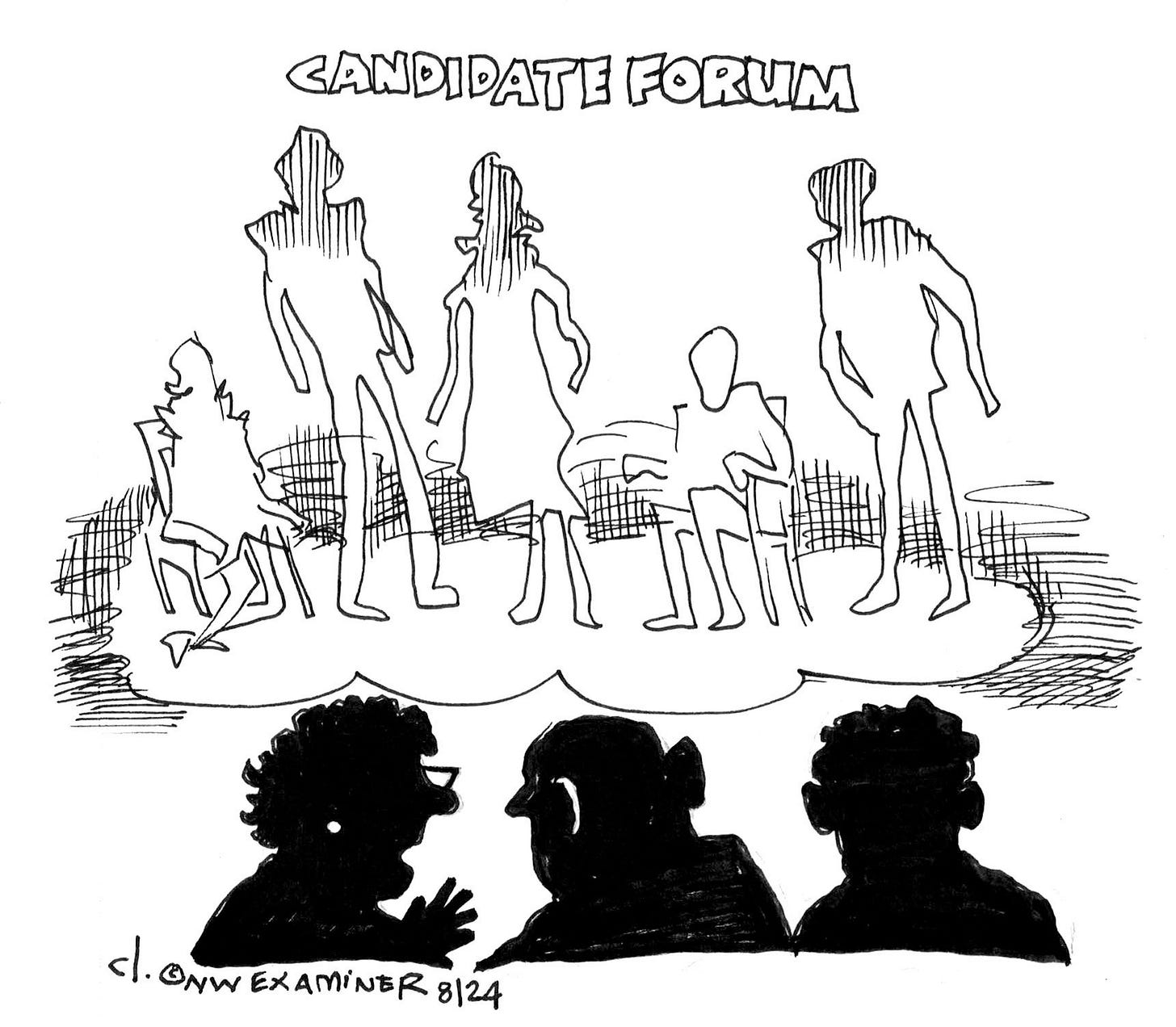Debating without words a standup idea
Editorial
Would-be Portland politicians could not have written a more accommodating charter than the one rolling out in the November general election. The number of City Council job openings jumps from four to 12 and the pay is fatter, while the duties are vastly trimmed.
Even unsuccessful campaigns need not be a financial loss, thanks to a public funding system that bestows up to $9 for every dollar raised the hard way through donations from individuals.
And due to a ranked-choice voting system that sets the bar for victory at a mere 25 percent, candidates can tag-team with other contenders and ride into office without being anyone’s first choice.
A broad range of heretofore political outsiders sensed the opportunity and signed up. More than 20 candidates have filed for each of the four district races with the deadline still a month away.
For the voter, the system is less accommodating. How can a citizen reasonably study 20-plus candidates and make thoughtful decisions? Catching all at the same place at once is virtually impossible. Even if all the top contenders appear at the same event, the typical formats are not voter-friendly. Predictably evasive answers to predictable questions repeated by up to two dozen candidates is mostly mind-numbing.
What’s a voter to do?
I have a suggestion. Attend the District 4 Candidates Forum that I am moderating and co-sponsoring with Neighbors West/Northwest next month (Tuesday, Sept. 10, at Lincoln High School).
Rather than a row of candidates largely affirming pat positions on common topics, the heart of the event will be wordless. Voters want to know where candidates stand, not where they waffle to avoid giving a “wrong” answer. So we’ll ask them all to stand at once—or not—to show agreement to each in a list of statements and their corollaries.
Statements such as:
The main cause of homelessness is a housing shortage or mental health or addictions.
Neighborhood associations have too much or too little influence in City Hall.
Recent installations of traffic diverters and bicycle lanes improve or worsen transportation.
Public safety spending should prioritize the Police Bureau or Portland Street Response.
If any candidates find such either-or choices too confining, they may use their wrap-up time to clarify. Each may also make an opening statement. There will not be time for each candidate to challenge the implications in each question.
Avoidance and obfuscation are natural self-defense mechanisms practiced by all candidates. They do not contribute to the democratic process, however. Though not technically elections, the Supreme Court nomination process is a parody of the know-nothing approach in fielding questions from the Senate. Judicial careers have been saved, but to the detriment of the nation and to the integrity of the institution.
Elections mean something only when voters can express their will on the issues of the day. Votes cast on the basis of name recognition or warm-looking family photos in a brochure do not guide legislative bodies in any particular direction.
Candidates should tell us how they see the city’s challenges and what they intend to do about them. An election victory can then be a mandate to move in a certain direction or at least focus on certain problems. How can voters play their role if their selections say nothing about policy?
Designing a forum based on this goal is also a challenge. I hope that this novel approach will prove to be useful to voters and beneficial to our part of the city. At the very least, it should be interesting.



